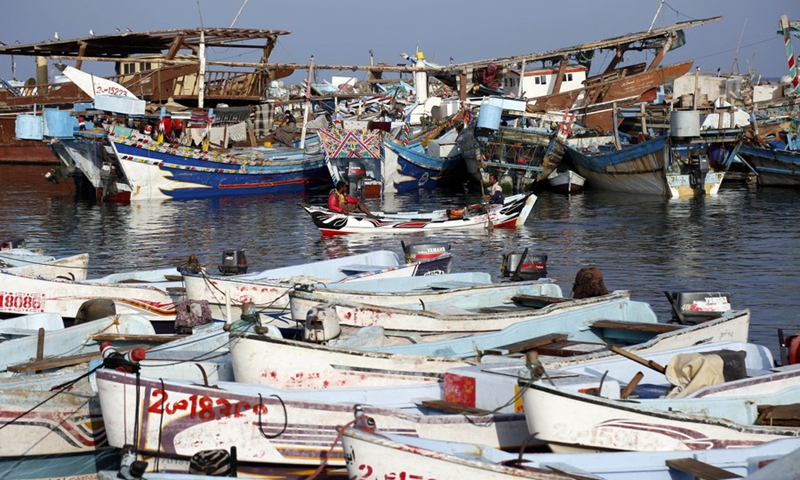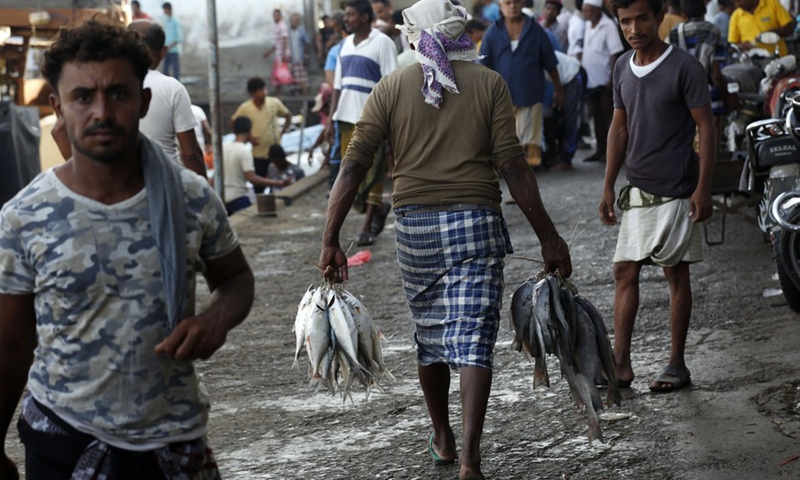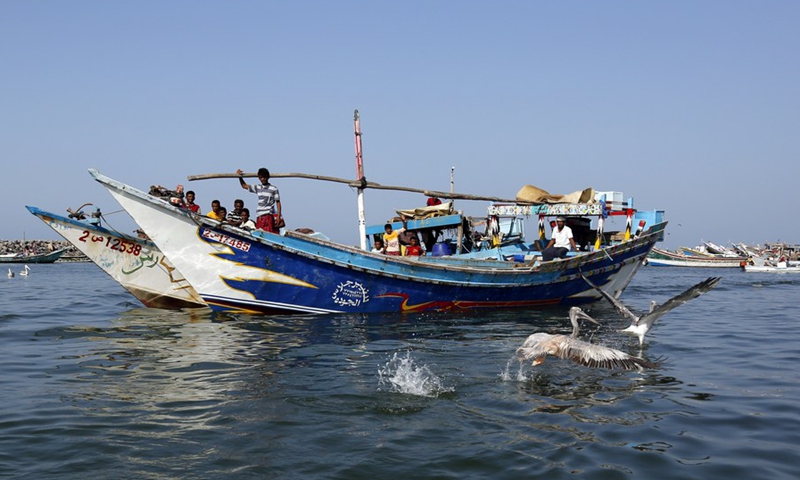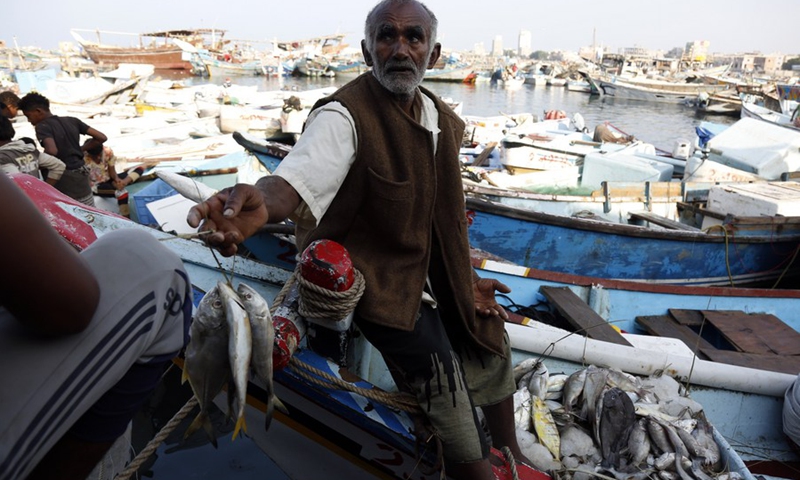
Fishing boats are seen at a fishing harbor in Hodeidah, Yemen, Nov. 19, 2021.(Photo: Xinhua)

A man carries fish in his hands at a fishing harbor in Hodeidah, Yemen, Nov. 19, 2021.(Photo: Xinhua)

Fishing boats are seen at a fishing harbor in Hodeidah, Yemen, Nov. 20, 2021.(Photo: Xinhua)

A man sells fish at a fishing harbor in Hodeidah, Yemen, Nov. 19, 2021.(Photo: Xinhua)
"The abundant Red Sea is a precious gift for Yemeni fishermen. But the blockade has deprived us of the gift," said Essam Mohamed Al-Mwafa, 34, a fisherman in the Houthi-held city of Hodeidah, a strategic port that is under strict blockade.
To contain the Houthi rebels, the Saudi-led coalition has forbidden Yemeni fishing boats to work far from the coast while the export of fish, which was a crucial business in the city, has been completely stopped.
"The areas we can fish are very limited, and there are not enough fish for all the fishermen," said Al-Mwafa.
In the fishing port where Al-Mwafa is working, hundreds of fishing boats rested in the harbor as the fresh salty wind rocks them softly. Most of the fishermen only sat or lay on their boats in the warm sun, gazing at the horizon on the sapphire Red Sea.
"We don't have a lot of business. There are few fish to catch and fewer people to buy them," the fishermen said.
Before the civil war started in 2014, the fishing industry employed more than half a million people and was the country's second-biggest export behind oil and gas.
At its heyday, the harbor was a boisterous trade center with thousands of fishermen and traders shouting, negotiating and shaking hands.
"For me, life before the war was good. But then it changed," said Al-Mwafa.
In 2018, Al-Mwafa and his boat were hit by an airstrike when he sailed "a little too close" to the blockade lines. He was injured, lost his boat but barely escaped death. The incident has installed indelible horror in his mind.
"Every time I sail to the sea, I don't know whether I will get killed," said Al-Mwafa, adding that some of his friends have died in airstrikes or bombardments from warships.
Muhammad Al-Hassani, the head of the fishermen union in Hodeidah province, said "since Hodeidah was caught in the war in 2015, fishermen have been targeted either directly or indirectly."
The coalition denies targeting fishing boats, saying it is preventing arms smuggling and protecting itself from boats that may be laden with explosives.
For Al-Mwafa, although it took him three years to recover from the injuries, he decided to return to his old trade as his family is on the edge of being broke.
"If we don't go out, we will starve. Besides, fishing is a business for our people for generations. So I continued the business in fears," said the fisherman.
The war flared up in late 2014 when the Iran-backed Houthi movement advanced from its stronghold in the northern province of Saada, seizing control of several northern provinces and forcing the Saudi-backed government of President Abd-Rabbu Mansour Hadi out of the capital Sanaa.
The war has since killed tens of thousands of Yemenis, displaced 4 million, and pushed the country to the brink of starvation.
